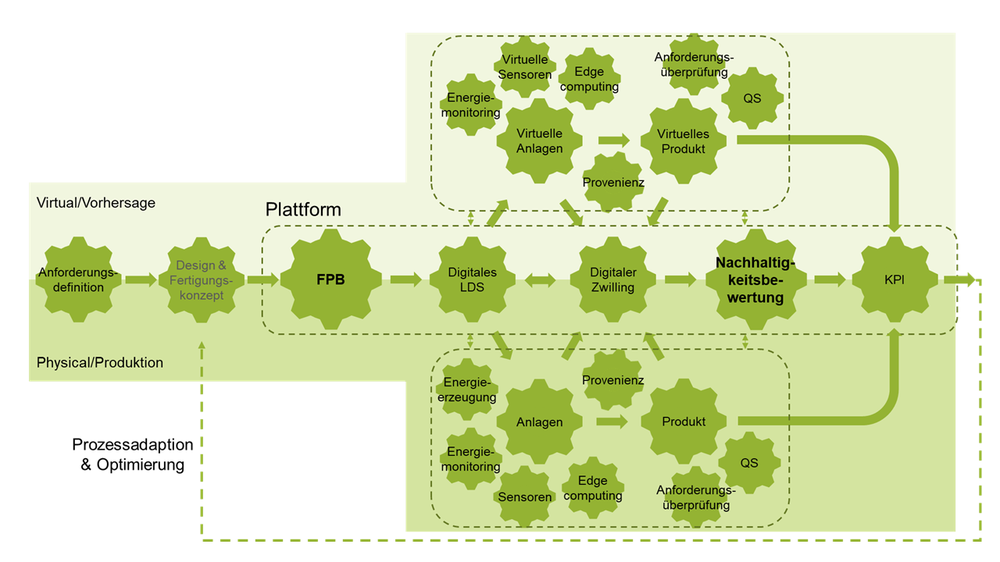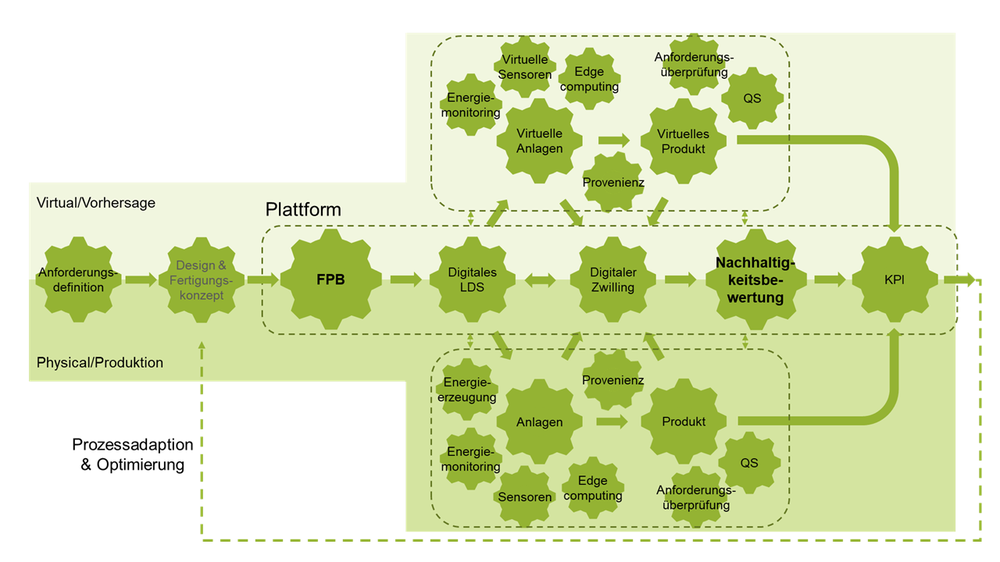PredictEco - Product development with consideration of simulation-based sustainability assessment
As part of the sub-project, key aspects of the necessary capabilities will be developed, provided and connected in the IoT context. The sub-project requires the expansion of a modelling capability for the manufacturing process based on a formalised description. To define this, the sub-project will take into account the information requirements for sustainability forecasting using LCA software. The capabilities for process modelling and processing the data obtained for eco-efficiency assessment form the core of the platform developed in the overall project, see Figure 1. In the sub-project, the improved formalised process description will be established as a universal input for process modelling, its implementation in the digital Life Data Sheet (LDS), the structure of the digital twin and the sustainability assessment derived from it on the basis of virtual and real process data.
In the area of virtual prediction of the data required for the eco-efficiency assessment, simulation models of the plants and components are being developed based on extensive previous experience and are being upgraded for use in data acquisition. To this end, data standardisation of numerical simulation data is being further developed and extended to include the acquisition of results data from the solvers used. The use of simulation data as virtual sensors is directly taken into account in this development. This information can be used to ensure that, in addition to saving resources, component quality is also guaranteed for processes modified from the standard. To ensure the robustness of the solution in the event of deviating data from real production, mathematical substitute models of the component behaviour are also developed in order to be able to evaluate in-situ effects and enable corrective intervention in the process control.
On the physical plant and process side, the sub-project will create opportunities to monitor processes and intervene in the process design. The project partner DLR is providing the existing plant hardware for this purpose. The integration of a plant control system that has been jointly revised with the partners and the topological improvements to the hardware contribute significantly to the goal of improving the eco-efficiency of resource-efficient production processes (→ Sustainability through digital technologies).
In order to increase the usability of the data obtained, e.g. in terms of certification, it is enriched with provenance information as meta-information (→ Sustainability of digital technologies).
Participating project partners
Funding



